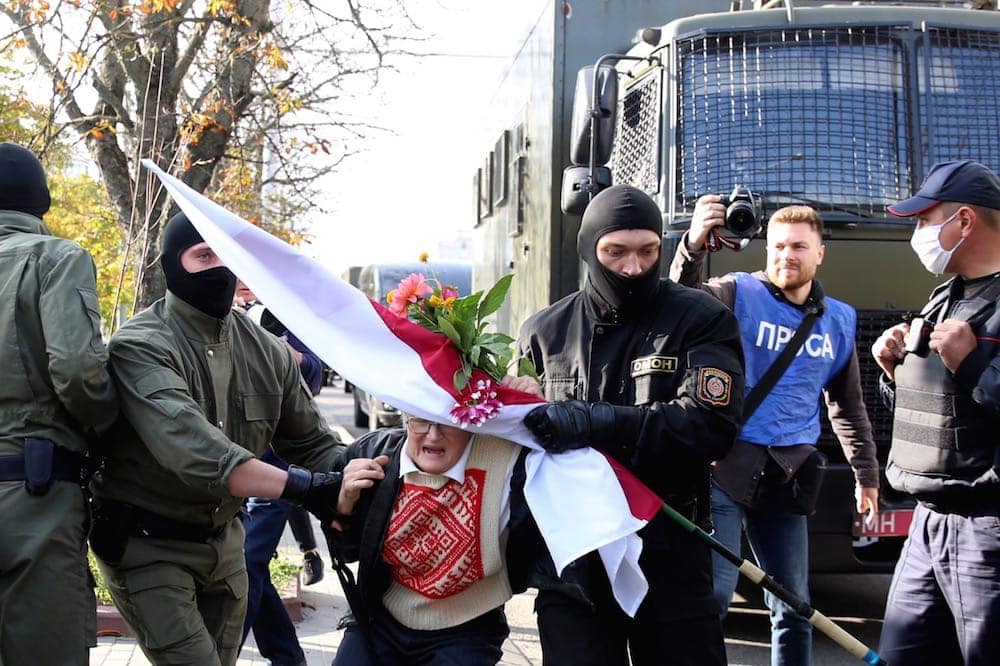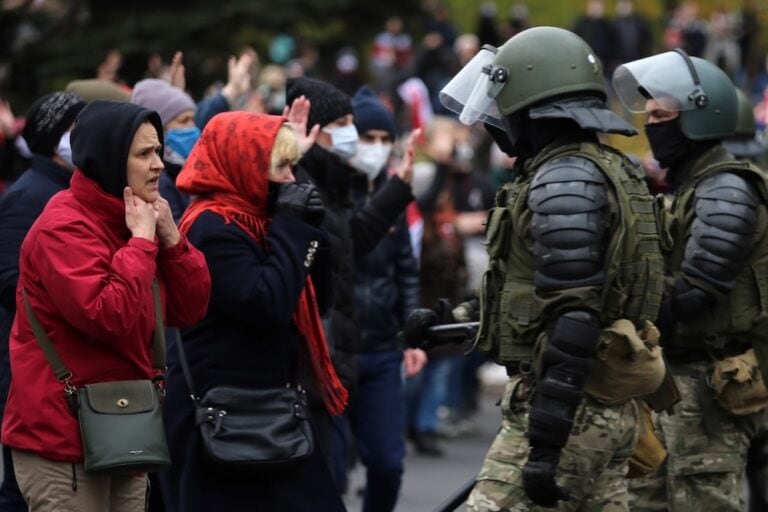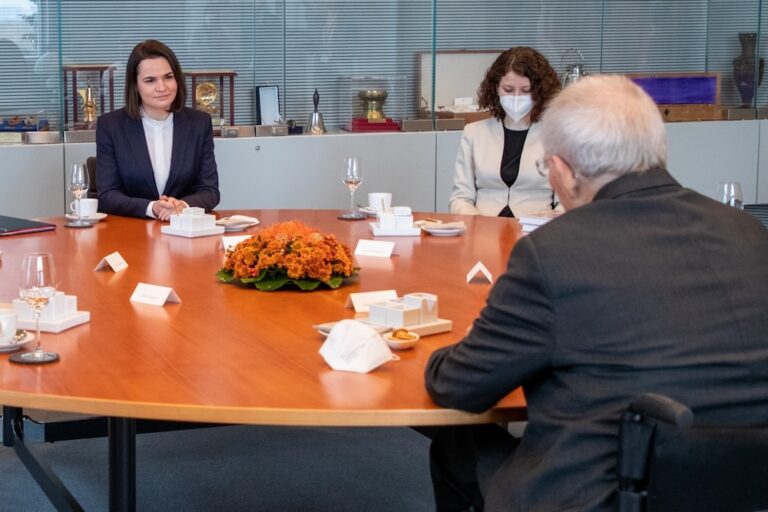During the six weeks following the presidential election over 170 journalists were detained. There were 52 cases where journalists faced beatings and damage to (or seizure of) their equipment. Two journalists were wounded.
This statement was originally published on baj.by on 18 September 2020.
Today, the law does not defend us.
From the beginning of the year to mid-September, BAJ recorded more than 300 cases of gross violations of journalists’ rights. The absolute majority of them occurred in the post-election period, that is, in just 1.5 months. There were over 170 detentions during that period; in 52 cases, the journalists faced violence, beatings, damage to (or seizure of) their equipment, while many colleagues were held in custody and sentenced to short jail terms… In a peaceful country, reporters worked literally under bullets! Two journalists were wounded, another one was stunned by a stun grenade… All this – despite the assurances of Interior Minister Yuri Karayev that “the press is sacred. Whatever [journalist] may be, they cannot be touched.” Alas, in practice, these words are either ignored or the security forces actually receive the opposite instructions.
Today, the law does not defend us.
We have long been used to “technicalities” that become the reason for blocked news websites at the most intense moments of political campaigns or during mass protests. But, living in an “IT country”, we could hardly imagine an Internet blackout for three entire days! However, the security services did not forget about the websites either. Since August 9, many news websites have become inaccessible in Belarus without any explanation or warning. Only on August 21, the authorities realized they needed legal justification for blocking these and decided that “harm to national interests” is a good enough pretext to restrict access to dozens of news websites, including the most popular ones.
Then they thought of a way to expand the “target audience” whose access to information should be limited. Several newspapers were not printed for absolutely far-fetched or no reasons at all. The newspapers that managed to print their issues abroad were turned down by the regular distribution channels. Narodnaya Volya, Komsomolka, Belgazeta, Svobodnye Novosti… Now they face penalties for alleged non-fulfillment of their obligations. Fire in one hand and water in the other? If only their hands could be tied – strictly by virtue of law – but..
Today, the law does not defend us.
We are used to the problems of freelance journalists. Every year they receive huge fines. The authorities fine Belarusian citizens who cooperate with foreign media without accreditation from the MFA. Accreditation that is simply impossible to get. They fine journalists under no valid legal reasons (article 22.9, part 2 is a stretch; it does not provide for liability of journalists cooperating with foreign media without accreditation). But things have only gotten worse this year. At first, more than a hundred foreign journalists were not granted short-term accreditation for the election period (on the pretext of the coronavirus, which did not exist in Belarus, the authorities claimed earlier). Then, 17 correspondents from well-known foreign media were deprived of their permanent accreditations. Foreign journalists were simply expelled from the country (and some of them beaten as a farewell).
Today, the law does not defend us.
But, in fact, we saw a similar situation 25 years ago. BAJ was created in response to the sharp increase in pressure on journalists and the media after the person who promised freedom for the press came to power. “White spots” in newspapers, detentions, criminal cases against journalists, closure of publications, threats and even murders…
And yet journalists continue to work. No matter what. Blocked websites disseminate information through “mirrors”, telegram channels and social networks (while citizens rapidly raise their information literacy and learn how to bypass the bans). Volunteers distribute Narodnaya Volya, spreading the print run in just one day. Journalists stay overnight in front of police departments and detention centres waiting for their colleagues to come out. They continue to do their job: to find, receive and disseminate information.
I have enormous respect for everyone who works in the field despite all the risks and threats. Everyone who works in the newsrooms. Everyone who refused to multiply the lies by resigning from the propagandist media. Everyone who supports their colleagues in detention centres and courts, and helps them in word and in deed. Everyone who contributes to spread information about what is happening in Belarus and abroad. Everyone who chose to stay outside the frowsy media space that the “people in black” are trying to create.
Today, the law does not defend us.
Today we defend the law.



